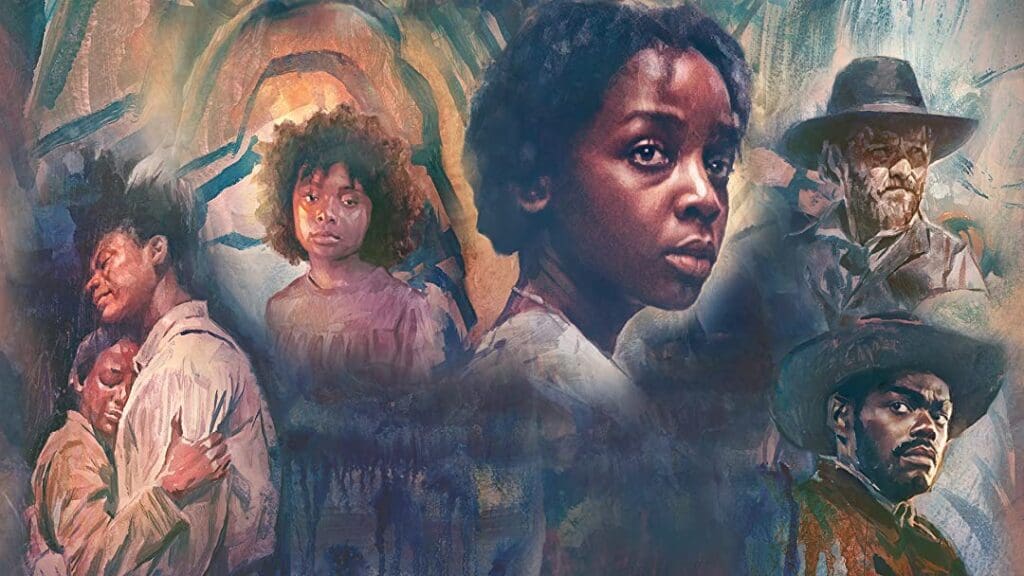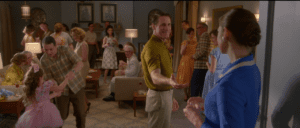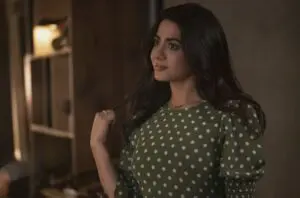Summary
“Chapter 9: Indiana Winter” is as perfect and powerful an episode of television as has ever been put to film.
This recap of The Underground Railroad episode 9, “Chapter 9: Indiana Winter”, contains spoilers.
“Chapter 9: Indiana Winter”, the almost feature-length penultimate episode of The Underground Railroad, begins — after a brief cold open with Ridgeway firing up the cleansing fires of his homestead’s forge — with Cora being reunited with first Ellis and then Royal. Time has passed since the previous episode, and in that time, Cora has had a chance to think about how she feels. Evidently, so has Royal, who regrets how he left in the first place. These two holding hands is one of few moments of genuine warmth and connection that this show has allowed its characters, Cora especially, and her testifying in the vineyard’s church is a moment of great unburdening. She confesses not just to being a runaway but to being wanted. She tells of Lovey and Caesar; of killing the “boy” during her escape.
All this truth divides opinion. Royal and Gloria (Amber Gray) are firmly on Cora’s side, but Mingo (Chukwudi Iwuji) is loudly against her. One has to assume those who don’t speak are similarly mixed on the matter. Right on time, Ridgeway and Homer are in the office of the hard-drinking Indiana Judge Smith, who denies them a warrant without a deed from Georgia for Cora’s arrest. With it, though, the warrant will be granted, so it’s only a matter of time until Cora’s past catches up with her.
The Underground Railroad episode 9 features the most moving examples of Jenkins’ favorite technique of having his characters in tableau, staring unflinchingly at the camera. There’s an indescribable, wordless emotional power in these moments; almost all of them have put a lump in my throat, this one especially. “Chapter 9: Indiana Winter” also features an earned moment of closeness between Cora and Royal — “I hear your heart, Royal,” she tells him, “From the very first, I always did” — that will inevitably spell disaster for their future. The show has gone for a while now without tragedy; it has given us enough of a glimmer of hope that snatching it away will hurt more than ever.
Trouble begins coming over the horizon in the shape of a business deal between the Valentine vineyard and several well-to-do white men that is being fronted by Mingo, who is keen to show off how “eloquent and democratic” Negroes can be, and so invites these men who obviously mistrust him and his enterprise to survey the compound. Judge Smith warns him to not antagonize, to not show off how “as good as white men” he can be, but Mingo knows himself to be thus. He is as eloquent and democratic and intelligent as any white man. But is his capacity for selfishness and betrayal equal too?
Before long, word begins to spread. Hands are shaken. Knowing glances are exchanged. Information begins to move through Indiana in the manner it always does, quietly at first, and then with gathering speed and fervor. What were once matters of concern to only the farm — Mingo’s proposed deal, Cora’s fate — become matters of concern to everyone, including Ridgeway, who spends the first half of the episode getting increasingly drunk and annoyed at the speed of telegrams. John Valentine (Peter De Jersey) and Mingo speak so enthusiastically and compellingly to the assembled citizens of the vineyard that I was stunned; the quality on display here, of acting, writing, and direction, is almost unrivalled on television. When the white men Mingo invited crack open the church’s door to join the debate, the sense of intrusion is palpable. Ridgeway roaming around outside, a rifle on a sling, feels like a violation. As the speechifying reaches a fever pitch, white men with guns emerge from the woods and circle the church.
As Valentine declares that if you give the white man a piece, he’s coming for all of it, the white men open fire. It’s a massacre. Mingo and Valentine are shot dead. Women and children are run down on horseback. Survivors cower and sob under church pews as more lead and glass explodes from the windows. Buildings are burned. Some, Royal and Cora and Gloria among them, begin to fight back. But Royal is eventually shot in the back. Cora is spared a similar fate by Ridgeway, who kills her attacker, but takes her with him, demanding she takes him to the railroad.
Cora does what Ridgeway wants, but he gets more than he bargained for. On the rope ladder that leads them underground, Cora pulls a distracted Ridgeway loose and falls atop him from a great height. His body cushions her fall. While she doesn’t finish him off, talked out of it at least in part by Homer, she leaves him there, immobilized, and climbs back to the burning surface, where she finally breaks down in tears.
When Cora returns down to the railroad, she finds Ridgeway narrating his last words to Homer, a reiteration of the American imperative. Lift up the lesser races. If not lift up, subjugate. If not subjugate, exterminate, eliminate. His words speak over a sea of Black faces, all staring at the camera, at the audience, at the rotten, sordid history of the United States, at the festering wound of slavery. Cora stands over Ridgeway and shoots him, three times, and the words finally stop.



